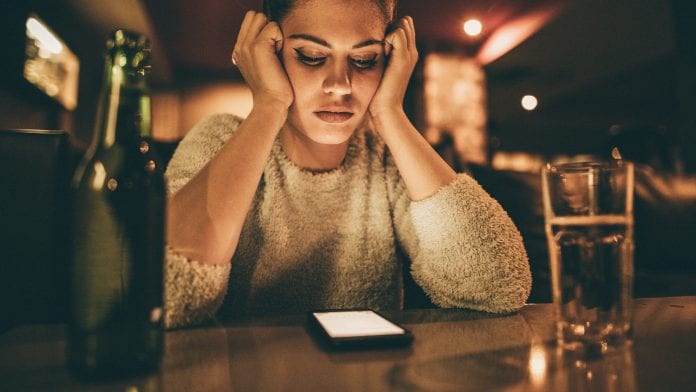
Binge drinkers, typically university students, are frequently posting on social media while intoxicated therefore showing signs of social media addiction.
Researchers have found that social media addiction is in fact a phenomenon that occurs, particularly amongst students who drink alcohol. Student binge drinkers may later may regret their drinking-related posts and experience other detrimental consequences i.e. affecting mental health, from combining social media and alcohol use. The research appears in the Journal of Studies on Alcohol and Drugs.
The social media addiction
Natalie A. Ceballos, Ph.D., of the Department of Psychology at Texas State University, USA, explains: “During these times when young students are feeling disinhibited by alcohol, they may be even more likely than usual to post inappropriate material without considering the future impact.”
“In some cases, these sorts of mistakes have even influenced college admission and later job applications.”
Further, friends who view their posts of heavy drinking may then be more likely to perceive intoxication as exciting and fun.
“Findings suggest that, in terms of common brain reward mechanisms, perhaps when students get a positive response on social media, this might be “rewarding” to them in a way that is similar to other addictive behaviours, and then over time they get ‘hooked’.” Ceballos adds
Can binge drinkers benefit from social media?
The social media addiction may also prove to be an avenue for prevention efforts among student binge drinkers.
“While college students’ reliance on social media has been identified as a risk factor for alcohol-related problems,” Ceballos says, “it might also present an opportunity for innovative interventions.”
Because social media use has exploded in recent years and trends among young people have changed so quickly, the researchers sought to define exactly what platforms college students are using and how they are using them, particularly in relation to alcohol use.
Studies of pathological gambling have shown that harm-reduction messages delivered ‘in the moment’ can help disrupt this behaviour.
Ceballos concludes: “I believe that pairing recent advances in alcohol biosensor technology (to detect a drinking episode when it occurs) and ecological momentary interventions (to reach out to clients via mobile phones ‘in the moment’) could make this type of intervention a reality in the very near future.”









